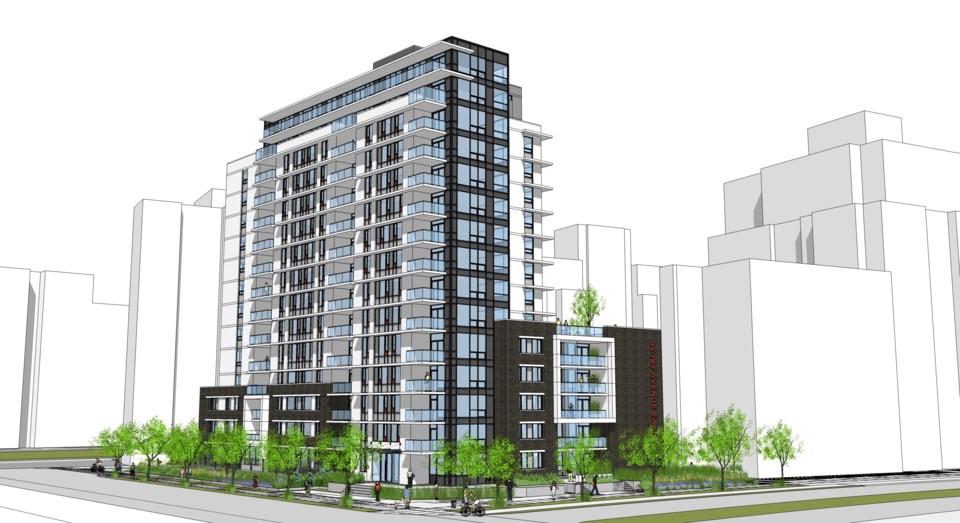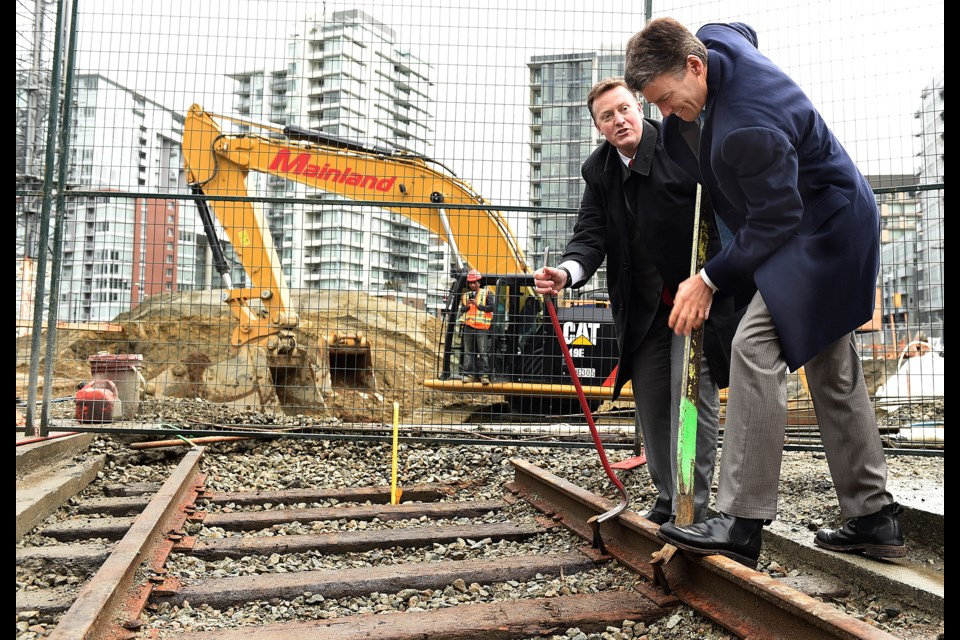The city’s push to build more affordable rental housing in Vancouver continues to be done largely without investments from the provincial and federal governments.
But Mayor Gregor Robertson said the city’s ability to negotiate the construction of rental housing through rezoning deals and other programs with developers are practices not meant to dissuade senior governments from contributing housing money.
“It doesn’t take them off the hook,” he told reporters Tuesday at a news conference to announce the construction of a 135-unit rental tower geared towards families.

The 15-storey building to be constructed at Quebec Street and First Avenue will see 40 per cent of units rent for approximately $900 to $1,500 a month and targeted at households earning $36,500 to $56,000 a year. The remaining 60 per cent will be rented at what the city defined as “modest market” rents, which could range from $900 to $2,000 a month, depending on the size of the unit.
The entire project will cost $38.7 million.
The deal came as a result of negotiations with Concert Properties, which is developing a 6.4-acre site on the edge of the former Olympic Village to include a park and four other condo buildings that will be sold at market rates. The rental building, which will be turned over to the city when completed in 2018 and then managed by a nonpfrofit, will include 44 two-bedroom and 29 three-bedroom suites. Two in-home daycare units will be on site.
“This is one of the first projects that is getting out of the ground that will create that modest family housing that we’ve been working towards over the past couple of years,” said Mukhtar Latif, the city’s chief housing officer, noting there is a dearth of new two and three-bedroom apartments in Vancouver.
While the mayor sees the project as a positive move to build more family housing, he pointed out that money from senior governments can lower costs of a construction project, create more housing units and make rents more affordable.
“If the provincial and federal government come to the table, then we can make it even more affordable, we can have welfare-rate housing -- if that’s possible,” said Robertson, referring to the $375 shelter rate given to people on income assistance.
For several years now, the city has largely been going it alone to create more rental housing in Vancouver. It launched a program in 2009 to provide incentives for developers that included waiving development cost levies and allowing an increase in density to get more rental housing built.
Several thousand units were built.
The 15-storey rental tower at Quebec Street and First Avenue was not part of that program. In fact, Concert Properties has never participated in the program.
“We couldn’t quite make the numbers work,” said Brian McCauley, Concert’s president and chief operating officer, citing the expensive cost of land and the inability to get a financial return on a rental housing project. “The land prices today are astronomical. And if you add that on to construction costs and soft costs and city charges, it makes it very difficult to make new residential rental work.”
That said, Concert has a long history of constructing rental residential buildings that dates back to the late 1980s. Concert now has 5,250 rental units that it owns and manages in Vancouver and another 2,300 units in Toronto.
The majority of the city’s purpose-built rental stock was constructed in the 1960s and 1970s and is badly in need of renewal. Much of that stock was built under a federal government program that offered tax benefits to developers. That program was scrapped in the 1980s.
“There’s lots of talk about the federal government getting back into rental housing, or affordable housing, so we’ll see what comes out of that in terms of infrastructure money,” McCauley said. “The mayor is correct: You can really only get to deepest affordability by having other levels of government participate.”
Prime Minister Justin Trudeau’s government delivers its budget March 22. Robertson has requested the federal government provide $500 million to build up to 3,500 units of new housing on 20 city properties worth $250 million.
In February, Premier Christy Clark announced $355 million over five years to construct and renovate more than 2,000 units of affordable housing in B.C. It remains unclear how much of that money will be spent in Vancouver and what exactly it will be spent on, although the province is expected to leverage the $355 million with federal funding.
mhowell@vancourier.com
@Howellings



